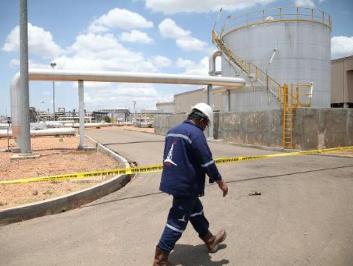S. Sudan Petroleum ministry launches open tender for audit
June 16, 2017 (JUBA) – South Sudan’s Petroleum Ministry has invited companies to bid on a public tender to perform an audit and produce a 2017 audit report on the country’s Petroleum industry.

The Tender process, it further stated, opens immediately and closes on 14 July, with winners to be announced on 17 July.
“Objectives of the audit include completing an accurate assessment of oil, condensate and gas reserves and production; reporting on revenue and investment flows; and making recommendations on the technical, fiscal and regulatory issues faced by petroleum industry actors,” the ministry’s statement partly reads.
It added, “The move to enhance efficiency and promote transparency in the hydrocarbons sector is viewed by the Ministry of Petroleum as the foundation for South Sudan’s future prosperity”.
The successful completion of the petroleum audit, the ministry stressed will be an important step for the country towards Extractive Industries Transparency Initiative (EITI) candidacy and membership.
Since its independence, South Sudan has relied on oil for all its income, a situation that has significantly compounded ongoing political and economic instability due to the fall in crude oil prices.
According to South Sudan officials, production in the past reached as high as 350,000 bpd but fell after a dispute with Sudan over fees for pumping South Sudan’s crude through Sudan’s export pipeline, which led South Sudan to halt production in 2012.
War-torn South Sudan got the lion’s share of the oil when it split from Sudan in 2011, but it’s only export route is through Sudan, giving Khartoum leverage and leading to ongoing pricing disputes.
(ST)
